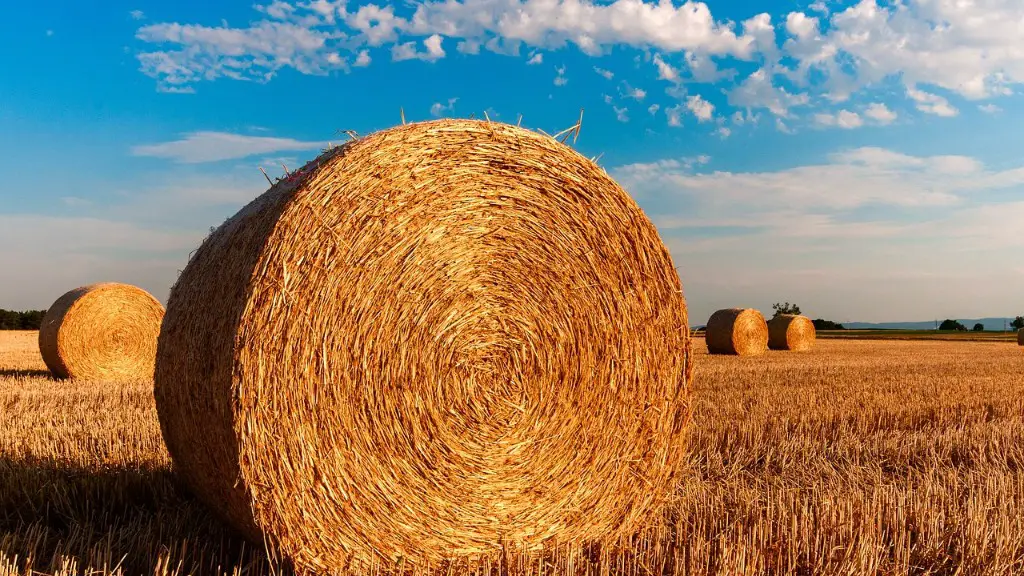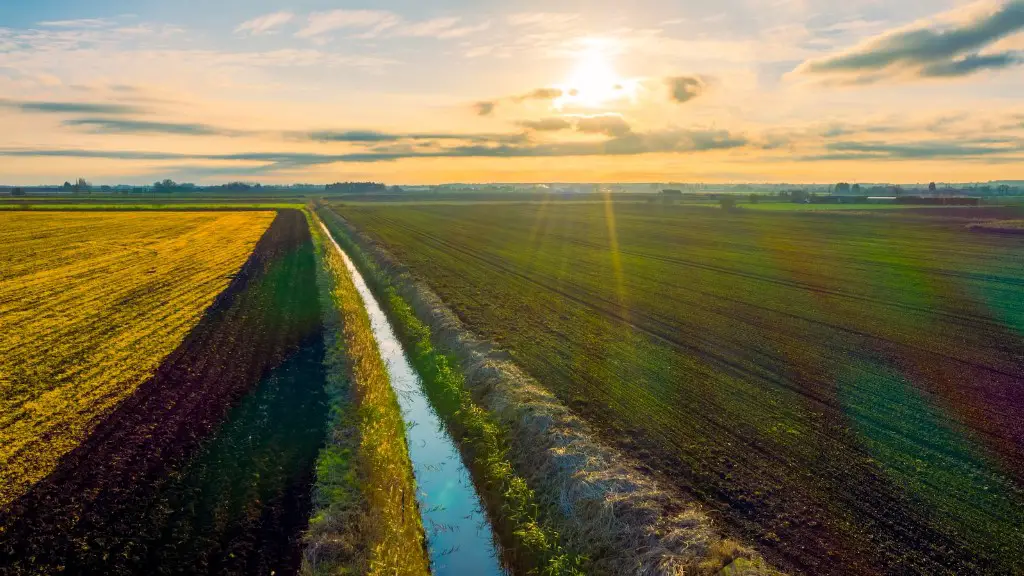Sustainable agriculture is becoming increasingly important to ensure that the future generations enjoy plentiful and safe food supplies. It involves the implementation of practices that help protect the environment from excessive soil degradation, water contamination, air pollution, and the loss of biodiversity. Here are a few of the primary reasons why sustainable agriculture is so important.
Reducing Pollution
Sustainable agricultural practices help to reduce pollution from the environment by creating techniques that minimize the use of chemicals and non-renewable energy sources. These techniques help to reduce harmful emissions, such as carbon dioxide and methane, as well as keeping soil nutritious and suitable for growing abundant plants. Additionally, sustainable practices often include the use of organic fertilizers, which also helps to reduce air and soil pollution.
Preserving Biodiversity
Sustainable agriculture helps preserve biodiversity by creating methods that encourage the growth of native species, while also eliminating invasive species. These native species help to create a diverse, vibrant ecosystem that supports the health, growth, and development of plants, animals, and organisms in the area. Sustainable agricultural methods, such as crop rotation and cover crops, also help to promote biodiversity, by providing habitat for animals and protecting the environment from overgrazing and soil erosion.
Reducing Climate Change
Sustainable agricultural practices help to reduce climate change by reducing the amount of greenhouse gases produced. By using methods that reduce water consumption and by improving the quality of soil, sustainable agricultural systems help to lower the production of carbon dioxide, which is a primary contributor to global warming. Additionally, many sustainable agricultural methods encourage the growth of forests, wetlands, and grasslands, which help to absorb and store carbon from the atmosphere.
Improving Food Security
Sustainable agriculture helps to improve food security by utilizing practices that help farmers become more efficient and produce higher yields. Sustainable agricultural practices, such as crop rotation and intercropping, help to ensure that the land is being utilized in the most efficient way, while still producing the crops needed to meet the food needs of the population. Additionally, sustainable agricultural methods often use less water and fewer chemicals, which helps to keep the soil healthy and safe, while also providing high quality food.
Improving Soil Quality
Sustainable agricultural practices help to improve soil quality by using techniques that replenish the nutrients in the soil, while also protecting it from excessive erosion. Techniques, such as crop rotation and mulching, help to maintain an ideal balance of nutrients and restore soil structure, while also reducing the amount of pathogens in the soil. Additionally, sustainable practices help to increase the organic matter in the soil, which helps to improve soil porosity and its ability to hold water and nutrients.
Building Robust Communities
Sustainable agriculture helps to build robust communities by providing job opportunities and creating a healthy environment for people to live in. By utilizing sustainable practices, farmers are able to generate more revenue from their land, which helps to create a more equitable society. Additionally, sustainable practices help to improve water and air quality, promote biodiversity, and make food production more efficient, which all work together to benefit the local communities.
Supporting Local Economies
Sustainable agriculture helps to support local economies by providing farmers with an opportunity to create their own economic sustainability. In many cases, where traditional farming practices have depleted the soil, sustainable agricultural practices have been able to help farmers transform their land into a viable source of income. By utilizing sustainable practices, farmers can increase their income and support their local communities.
Promoting Environmental Preservation
Sustainable agricultural practices help to promote environmental preservation by protecting the natural resources and habitats that support the health of the planet. By utilizing techniques that foster healthy soil, conserve water, and reduce air pollution, sustainable agriculture helps to ensure that future generations will be able to enjoy the same bountiful resources. Additionally, the use of organic fertilizers helps to safeguard the environment from synthetic chemicals that can be harmful to both wildlife and humans.
Encouraging Effective Farming Techniques
Sustainable agriculture helps to encourage effective farming techniques by providing incentives for farmers to use practices that are beneficial to the environment. These practices include crop rotation, cover cropping, and the use of cover crops to reduce soil erosion, optimize water usage, and ensure a healthy soil for future crops. Additionally, sustainable agricultural practices help to conserve natural resources and maintain healthy ecosystems, while also reducing the need for chemical fertilizers and pesticides.
Enabling Sustainable Growth
Sustainable agriculture helps to enable sustainable growth by providing farmers with the tools and knowledge necessary to produce a healthy, nutritious, and safe crop in an ecologically sound manner. By using sustainable practices, farmers are able to increase their yields, while also preserving the environment. Additionally, sustainable agriculture helps to reduce poverty and enhance the standard of living, by providing access to safe, edible food.
Improving Health and Nutrition
Sustainable agriculture helps to improve health and nutrition by providing safe and nutritious food that helps to protect people from malnutrition, foodborne illnesses, and other health-related problems. Many sustainable practices, such as the use of integrated pest management and crop rotation, help to ensure that the food produced is free from contaminants, while also preserving vital nutrients. Additionally, sustainable practices also help to increase food availability in areas where traditional farming methods have led to soil depletion and soil erosion.


